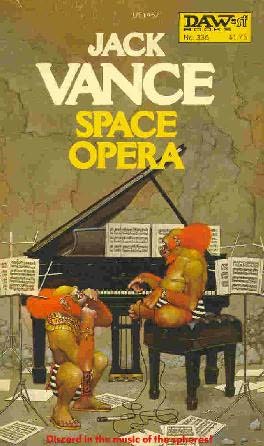Ok, now that I’ve got your attention with a suitably monocle-wearing thread title, lemme give you a setup and then beg you all for suggestions.
When I was a kid, I loved Star Wars, and loved it a lot. I think I dug sci-fi stuff during my high school days too–I sure don’t remember hating it, and the SSI game “Freedom In The Galaxy” (memo to Mr. Tom Chick–that’s the game you couldn’t recall the title to in the 3 Moves Ahead podcast last week!) was a favorite of mine. I read Battlefield Earth in high school, and–blissfully ignorant of the Hubbard trappings behind the novel–I loved it. Then college arrived, and I took Astronomy 80 for my science with lab credit…and discovered much to my dismay that college-level Astronomy courses have this nasty, nasty pestilence intertwined with almost every aspect of the coursework: they have math. Who knew? I didn’t, and I suck at non-accounting style math.
I think that was the point where I decided I loathed sci-fi and especially all things “space”. I’ve crossed my arms in front of me and turned up my nose at every flavor of Star Trek or Babylon 5 on television for years. Games set in futuristic space-ish settings did nothing for me. Sci Fi and the Space Opera genre were cold porridge to me, and I wanted none.
Funny thing happened to me this month. Looking for an rpg to play, I grabbed Mass Effect off D2D for twenty bucks. And…I don’t hate it. I actually am having a very good time, even if I’m utterly lost in some of the trappings of the game that I suspect people with deeper backgrounds in familiar milieus navigate easily. I started watching BSG (7 episodes into the first season, thanks) and I’m really enjoying that, and quite a bit.
So now here’s the thing. This is a whole new genre to me. I have a hankering to read some good stuff in the genre but I haven’t the foggiest idea where to start. I’ve always figured that if someone expressed interest in typical fantasy genre tropes, you could easily say “Check out Tolkein, check out the Memory, Sorrow, and Thorn series, and look at GRRM and SOIAF” and get someone off to a very nice, huge backlog of essential reading in those genres. Well here I am looking for the space opera equivalent. I’m not looking for plausible science; my problem with a lot of classic sci-fi authors is that once they start throwing out terms and usages from high school physics class, I can actually feel my own eyes rolling into the back of my head.
So…any help out there? What should a newb like me be looking to read? I’m pretty much allergic to Star Trek, and am looking for something that manages to be well-written enough to perhaps rise above some of the genre fiction trappings.
